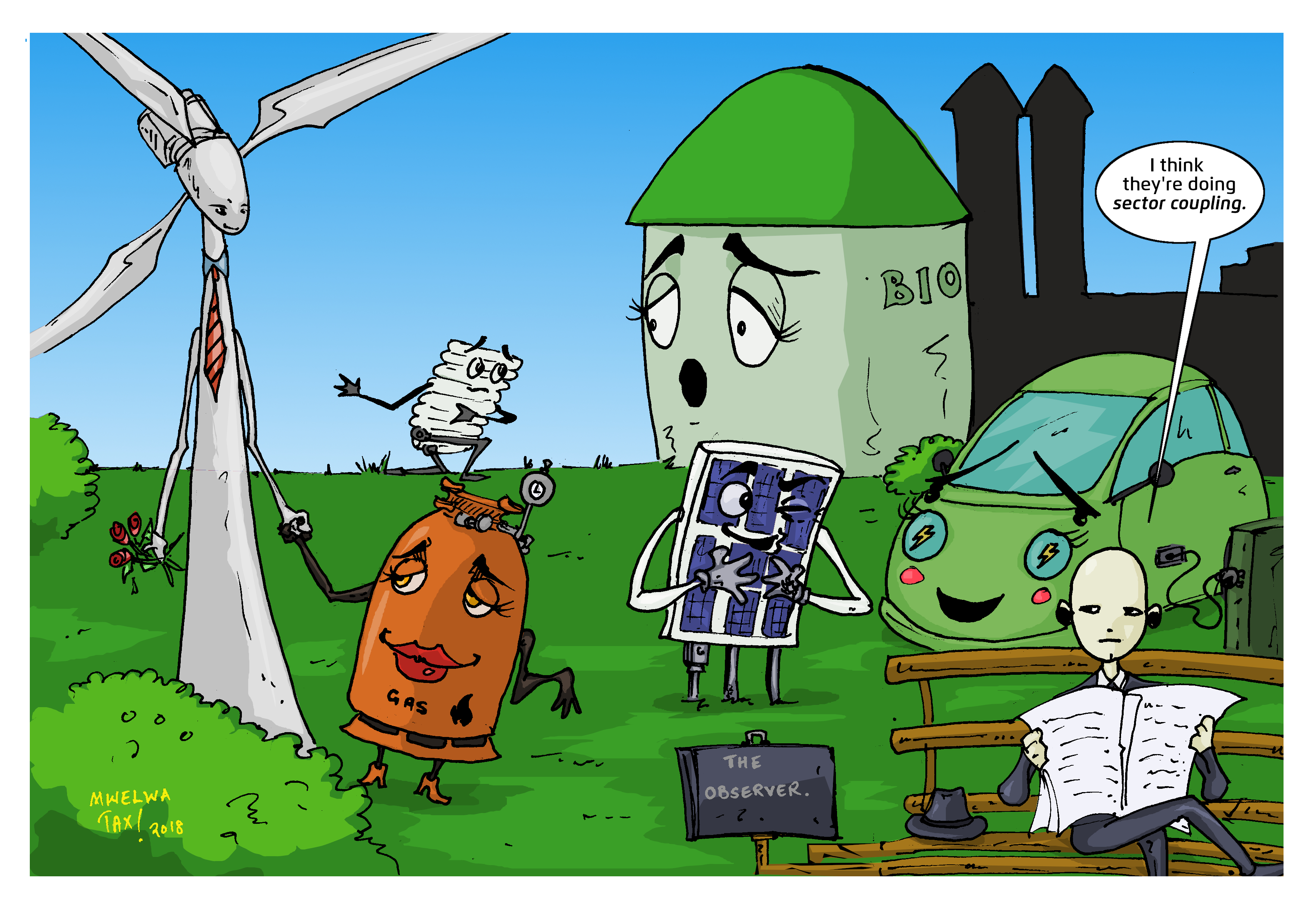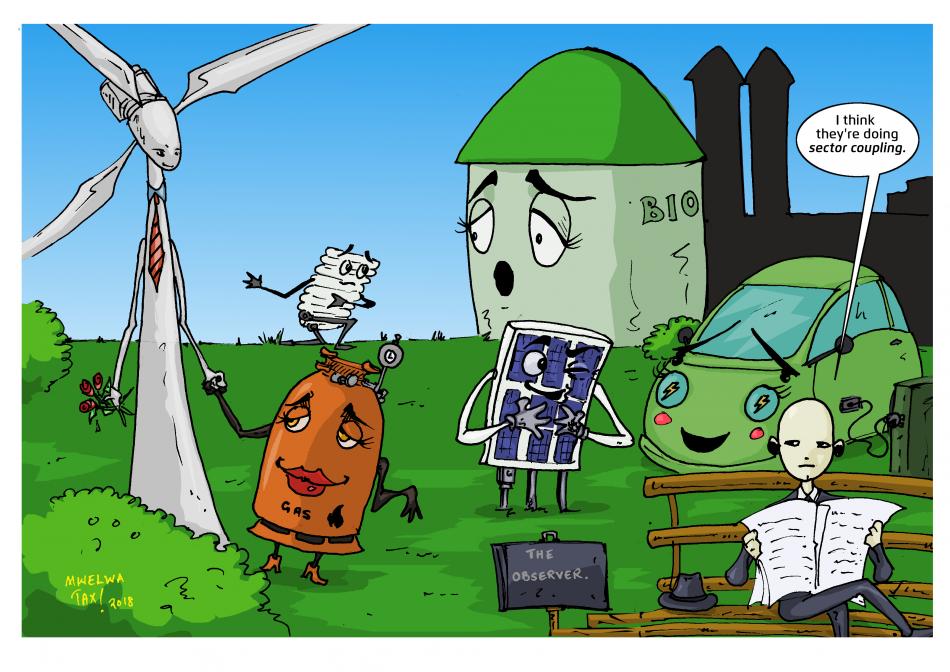Save CO2 in transport, not coal - state premier / Protests in Hesse
dpa
Saxony-Anhalt state premier warns against expedited coal exit
Instead of pushing for a coal phase-out, Germany should reduce its carbon emissions from transport and housing, Saxony-Anhalt State Premier Reiner Haseloff said, according to a dpa article carried by Berliner Morgenpost. An observer in the recently formed coal-exit commission, Haseloff opposes a fast coal phase-out, pointing to the thousands of jobs that depend on the coal industry. Saxony-Anhalt is a major lignite producer. On Tuesday, Haseloff called for a million-euro emergency programme to fund the structural change away from coal in regions economically dependent on the fossil fuel, the dpa article says.
Read the article in German here.
For background, read the article Commission watch – Managing Germany’s coal phase-out and the factsheets Coal in Germany and Germany’s coal exit commission.
Die Welt
Push to build wind turbines in Hessian forest elicits protests
Plans by the government of the federal state of Hesse to build wind turbines in protected forest areas have sparked opposition from some environmentalists, according to an article in Die Welt. They say the government is disregarding the protection of native birds in the push to advance the transition to renewable energy, Die Welt reports. The state has designated so-called “wind priority areas” high in the Hessian highlands that contain trees up to 800 years old.
Read the article in German here and watch a video from Frontal 21 on this topic in German here.
For background, read the dossier Onshore wind power in Germany and the factsheet German onshore wind power – output, business and perspectives.
Clean Energy Wire
Grid operator suggests connecting German offshore wind parks to Dutch grid
It could be cheaper to connect future German North Sea wind parks to the Dutch power grid rather than running the cables to, and through, Germany, Dutch-German transmission grid operator TenneT suggests in its half-year report published on Wednesday. Because there is a grid connection point directly on the Dutch coast at the port of Eemshaven, 100 kilometres of underground cables and 200 million euros could be saved and bottlenecks in the German grid bypassed, TenneT says.
TenneT also makes a case for the use of “green hydrogen” in a future integrated energy system. Hydrogen generated from renewable power could be used to store energy and decarbonise the transport sector. According to TenneT, production capacity for hydrogen could grow tenfold every five years with investment costs falling by 40 percent over the same period. TenneT CEO Mel Kroon suggested that a tender system similar to the one for offshore wind energy could be introduced for the development of “green hydrogen”.
Read the TenneT press release in English here.
For background, see the CLEW dossier on the German power grid here and a factsheet on an integrated energy system here.
Clean Energy Wire / Federal Ministry for Economic Affairs and Energy (BMWi) / Wuppertal Institute
New report examines technologies of the energy transition
Scientists from a group of research institutes, including the Wuppertal Institute and Fraunhofer ISI, have presented their report “Technologies for the Energy Transition” to the federal economy ministry. The report examines the status quo, expectations, market potential and other factors of technologies in 31 areas, such as power-to-gas, energy efficient buildings, and carbon capture and storage (CCS). These areas are divided into six categories, including sector coupling and infrastructure. “Energy research is a strategic element of energy policy and essential for the long-term success of the Energiewende,” said parliamentary state secretary Thomas Bareiß (CDU). He added that some technologies needed to reach Germany’s ambitious 2050 energy and climate targets are not yet available. The report will be used to develop the new edition of the Energy Research Programme, which defines the principles and priorities for funding for innovative energy technology, and is set to be decided by the German cabinet in autumn 2018.
Find the BMWi press release in German here and the report in German here.
Find background in the factsheet Technologies of Energiewende.

dpa
Baden-Württemberg consults with federal government in advance of diesel driving bans in Stuttgart
The federal state of Baden-Württemberg is holding talks with the federal government in preparation for driving bans for older diesel cars in the city of Stuttgart, according to a dpa article carried by Handelsblatt. Baden-Württemberg State Premier Winfried Kretschmann is consulting with the federal government on the labelling of affected vehicles. The bans are to take effect in 2019.
Read the article in German here.
For background, read the factsheets Diesel driving bans in Germany – The Q&A and “Dieselgate” – a timeline of Germany’s car emissions fraud scandal.
BDEW / FOCUS Online
Number of e-car charging points in Germany rises
The number of public and partially public electric vehicle charging points in Germany has risen by more than 25 percent from June 2017 to June 2018, to around 13,500, according to a press release from the German Energy Industry Association (BDEW). However, there are still many places, particularly in rural areas, with a dearth of charging stations, according to an article on FOCUS Online. Inadequate charging infrastructure is considered a major hurdle to the progress of electric vehicles, which have a market share of just 0.9 percent, the article says.
Read the press release in German here and the article in German here.
For background, read the dossier The energy transition and Germany’s transport sector and the article Economy minister Altmaier calls for mobility transition push.
Frankfurter Rundschau
E-cars will not close Germany’s emissions gap – commentary
Environment minister Svenja Schulze’s push for e-mobility will not allow Germany to meet its 2030 emissions reduction target, Dieter Seifried writes in a commentary for Frankfurter Rundschau. That's because the electricity needed to power electric vehicles would come from coal- or gas-fired power plants, according to Seifried. “In the end, the additional electricity demand for charging e-vehicles will lead to additional power generation in fossil-fuelled power plants,” he writes. Other measures to reduce transport emissions, such as speed limits and driving restrictions, have not been considered because of stiff opposition from the transport minister, he writes.
Read the commentary in German here.
For background, read the dossier The energy transition and Germany’s transport sector and the factsheet Sector coupling – Shaping an integrated renewable energy system.
The European Scientist
Nord Stream 2 would deepen Europe’s reliance on Russia – opinion
Moving forward with Nord Stream 2, the controversial natural gas pipeline, would increase “European dependence on Russia’s goodwill,” Jean-Pierre Riou writes in an opinion piece in The European Scientist. “The strengthening of this dependence, in this current geopolitical context, exposes Europe to an undeniable risk,” he writes. Furthermore, the project would undermine Europe’s liquefied natural gas strategy and “enrich” Russia, according to Riou.
Read the opinion piece in English here.
For background, read the news digest item Trump lashes out at Nord Stream 2, says Germany is “totally controlled” by Russia and the factsheet Germany’s dependence on imported fossil fuels.


